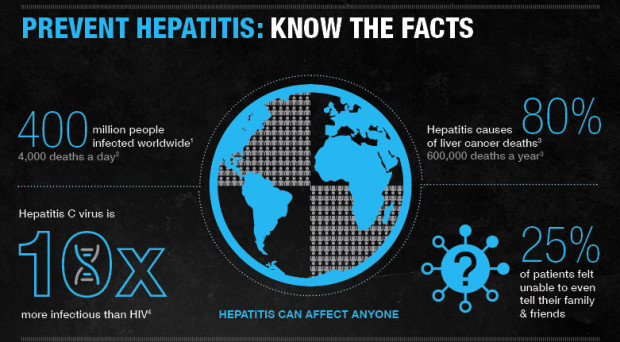
‘Prevent Hepatitis: Act Now’ is the theme for World Hepatitis Day 2015 and here we discuss some of the efforts made worldwide to study the effects of the disease and combat it.
Moroccan injection drug users – the hidden epidemic

Hepatitis C virus (HCV) is a persistent epidemiological problem, with an estimated 170 million individuals infected worldwide. In Morocco, injection drug users (IDUs) are a high-risk group for HCV, yet this group remains the most under-studied high-risk group in North Africa.
Roxana-Delia Trimbitas and colleagues found that IDUs display different demographic, serologic, and genotypic profiles compared with other high-risk groups in Morocco. The majority of drug users shared their needles and this holds implications for transmission. Local government and health practitioners should take this into account when controlling the epidemic.
Fiji: successful hepatitis B immunization program

With its white sandy beaches, we all know Fiji as an idyllic holiday destination, but do you know anything about its hepatitis B (HB) immunization program?
The HB vaccine was introduced into the childhood immunization program in 1989 and has been administered as a pentavalent since 2006. A serologic survey carried out during 2008-2009 demonstrated a significant reduction of HB infection rates in children and adults since 1989, indicating the HB immunization program in Fiji is very successful. The study will help public health officials in Fiji in their plans for strengthening programmatic actions for HB control.
Egypt: scorpion venoms as potential anti-HCV agents

Currently, the therapeutic options for HCV infection are either partially effective with considerable side effects, or too expensive to be accessible for all patients worldwide. Therefore, the development of safe and inexpensive anti-HCV compounds with improved efficacy is highly needed.
Alaa MH El-Bitar and colleagues demonstrate that Egyptian scorpion venoms have anti-HCV activities through the virocidal effect, indicating scorpion venoms as a good natural source for development of novel anti-HCV agents. This is the first report describing antiviral activities of Egyptian scorpion venoms against HCV.
Of course, these are just some of the efforts made to understand and prevent hepatitis. For more examples of hepatitis research from around the world, read our World Hepatitis Day 2015 article collection.
Also for World Hepatitis Day, read about our new journal Hepatology, Medicine and Policy, in this launch post from Editor-in-Chief Jeffrey V. Lazarus.
Karen Cheng
Latest posts by Karen Cheng (see all)
- Hepatitis research and therapy around the globe – Q+A with editors and reviewers - 28th July 2016
- A new era for Inflammation and Regeneration: an Editor Q+A - 25th April 2016
- Little Fish, Big Role - 19th November 2015
Comments